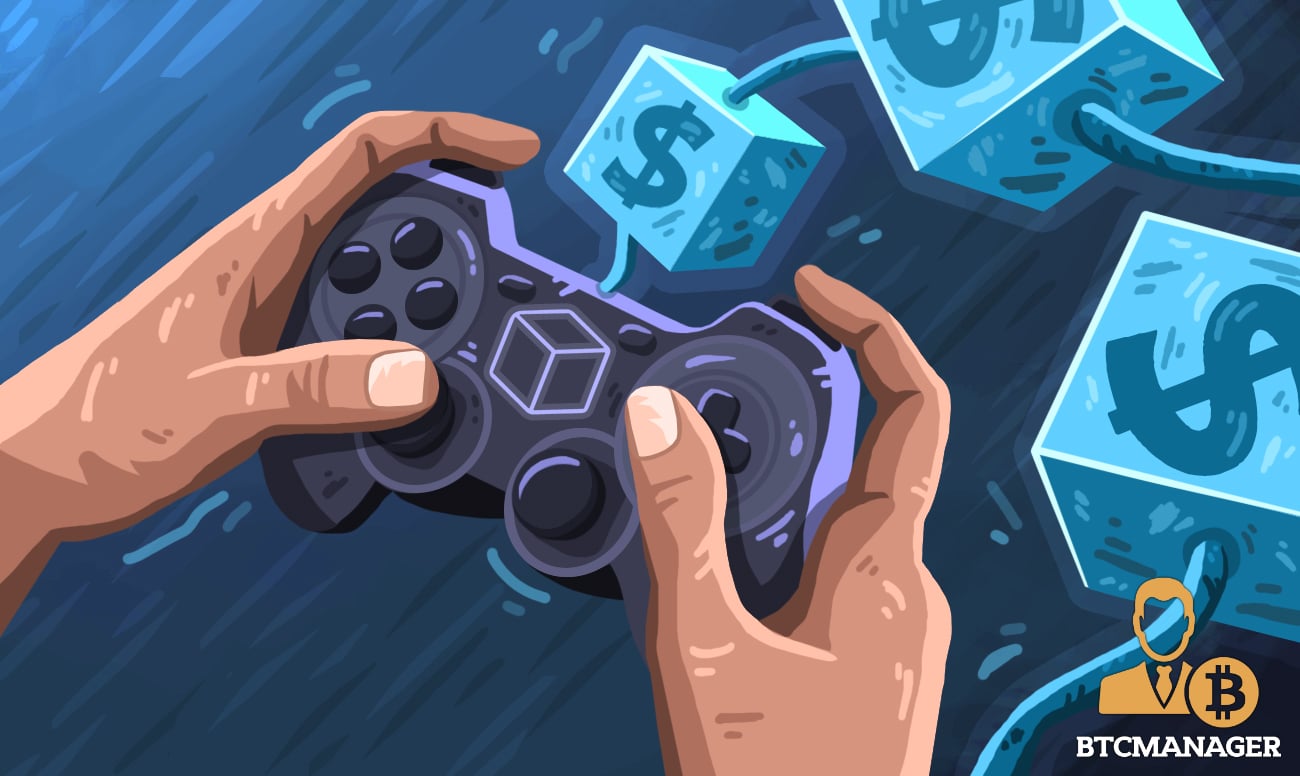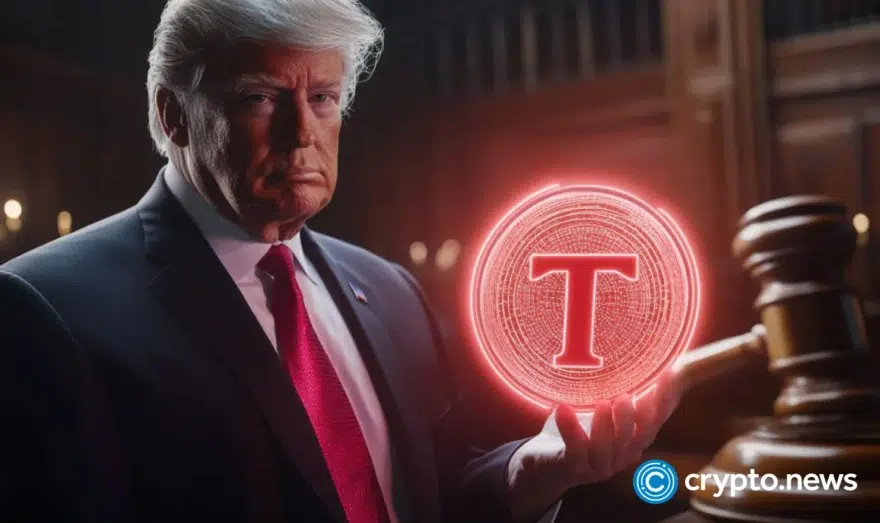Blockchain’s Great Gaming Crossover: Will It Ever Happen? A Look at Where Things Stand Now With Changelly’s Eric Benz

For a few years now people in the blockchain space have been circling gaming as the next big sector that blockchain technology will transform. Gaming is a massive industry that is getting bigger by the year. In 2018 gaming became the most profitable entertainment industry in the world, overtaking streaming platforms and leaving the box office and music industries in the dust. In 2020 a further estimated $128 billion will be invested into the gaming industry where profits by some projections are expected to eclipse $150 billion.
But, despite the prosperity of the gaming industry, and the prosperity of the blockchain industry, that crossover between the two that people have been predicting has yet to have happened. In this article we are going to take a brief look at some the reasons why we haven’t seen this happen and whether or not there is reason to anticipate something of the sort looking forward. For some inside baseball on the situation, we talked with Changelly’s Eric Benz who has been a key figure in the blockchain industry from the early days.
Why Gaming and Blockchain Make a Good Match
The reasoning behind why these two sectors should integrate is fairly straightforward. The way it stands right now, gaming has a massive audience that is willing to pay lots of money for new products and experiences. But people who look at the industry from a blockchain background would tell you that developers and gaming companies are fleecing their audience.
Let’s say that in 2020 consumers will pay about $150 billion dollars on gaming in general. So consumers pay the money and in return they get the experience they want. Everyone’s happy. But this equation, the blockchain-gamer would argue, has been unnecessarily simplified to benefit game producers. Consumers pay for the privilege to play games and the corporations and more than happy to pocket the money and say “Thanks for coming!”
If blockchain can be implemented into gaming in a meaningful way it could recalibrate the equation in favor of consumers. How? By introducing gamer ownership. Gamers today, at least the average gamers, don’t understand that they don’t own anything that they play, or that there is the possibility of ownership in gaming. If even a small part of the $150 billion that goes towards games and in-game purchases went instead towards gaming assets that then belong to the player/owner and can subsequently be traded for other stores of value, it would create a significant market and could potentially transform the industry.
Why It Hasn’t Happened
The great blockchain revolution in gaming hasn’t happened yet for a number of reasons, among them two very basic ones. First is awareness. The average gamer is not trying to calculate value ratios and base their gaming experience around economic profit. That kind of thinking is alien to the average gamer, who—understandably—is more concerned with the gaming experience as a means of entertainment. Like with the movie industry or the music industry, the gamer pays a fee in exchange for the ability to enjoy something. Looking at that payment as an investment would be a significant departure from the accustomed way of approaching gaming.
The second major reason behind blockchain’s failure to expand meaningfully into gaming is its complexity. As we noted before, the gamer views gaming through the prism of entertainment. Gaming is, to many, a means of relaxation. As soon as someone starts talking about private keys, decentralized assets and all the different wallet types, people unfamiliar with these concepts are turned off. They just become barriers to the familiar, enjoyable experience that the gamer is seeking.
Gaming, in its current form, is very accessible. Consumers know what they want and they know how to get it. The current formula works so any kind of significant change is going to be met with an understandable amount of reluctance.
One possible way of overcoming this reluctance is by putting out products that can compete with what is being offered by traditional gaming companies. Right now, blockchain games are light years behind their traditional gaming counterparts. There is just no real compelling reason for someone who enjoys regular gaming to switch over to blockchain gaming from a user experience or gameplay standpoint. Until that changes, and blockchain games can compete on that front it is hard to imagine there being a migration of traditional gamers into the blockchain space.
Benz Weighs in on Blockchain Gaming
Still, there are quite a lot of people that believe that migration of that kind, or at least a real development of the blockchain gaming industry, will take place. Not least among them is Eric Benz, CEO of Changelly. When we reached out to Benz on this subject we started by asking him how he thinks the gaming industry could benefit from blockchain technology.
He responded by drawing attention to the problems in the gaming industry that blockchain technology could solve and also highlighting one of the key factors in why this integration hasn’t happened: “There are many different verticals in gaming that blockchain technology can be applied to. Many of the issues currently in place in gaming are a result of not having the proper tools in place to perform auditing, payment processing, and identity management. These are of course only a few problem areas for gaming but there are many more.”
Benz went on to say,
“The most interesting thing with respect to blockchain technology is the fact that it can solve many of these problem areas but will it be better for the operators? Many of today’s operators make their money on fixing issues with players such as onboarding, payments, etc. If operators were to apply Blockchain technology it might very well fix their problems but will it help make them more money? This is the major debate at hand currently. Even though blockchain has the potential to make every game fairer, the real question is if the main gaming companies will actually do this as it will affect their overall revenue and this is the most sensitive subject for any business.”
From there we talked about Bitcoin’s relationship with gaming. Naturally, when people think about blockchain gaming, the first thing that comes to mind is applying the biggest cryptocurrency, Bitcoin, to the gaming space. We asked Benz if this was actually realistic, and whether we should be thinking about the situation differently.
Benz said,
“People, in my opinion, are focusing on the wrong things. Bitcoin still has the power to radically change the entire gaming experience for both players as well as operators. But will that actually happen? I feel that there will be attempts made in the coming years to have a ‘gaming’ token which will see every platform and service using this token exclusively thereby removing many of the issues around chargebacks and adoption in new markets.”
Regarding the critics of Bitcoin, Benz thinks,
“Many have said that Bitcoin is too slow and can’t be applied to such a high volume industry like gaming. But the problem really isn’t with Bitcoin here. I mean there is nothing really to apply Bitcoin to. Bitcoin in itself is one of the most revolutionary and innovative technologies we have ever seen and it’s just a matter of time before the currency and the technology is applied to everyday industries worldwide, including gaming.”
One related area that Benz thinks can really benefit from the introduction of blockchain technology is online gambling. Benz thinks that with online betting platforms, “Blockchain technology will without a doubt improve the transparency of the game. By offering a more ‘provably fair’ platform, which can be verified by the players, it will have a significant increase in deposits as well as an improvement in player behavior. This will lead to much lower amounts of fraud and increase overall signups and deposits. I think we are still a few years away from seeing this take any effect but it will happen and when it does we will enter a new era for online gaming.”
In conclusion, while there is still a ways to go before we see the kind of crossover that people have been anticipating, there is still reason to believe that this will happen in the future. While gaming has been around for a long time now, blockchain is still young and developers are figuring out how to apply it to different industries in the most productive way possible. As always, be sure to stick with us for more coverage of the situation as it develops.














